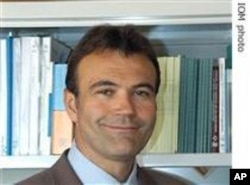With Ivory Coast’s commercial capital now enjoying relative calm after weeks of violence, the evacuation of migrant workers has resumed.
The International Organization for Migration [IOM], which is in charge of the operation, says as many as 100,000 stranded migrants may need assistance throughout the country.
In Abidjan
“IOM had to suspend the humanitarian evacuation program for migrant workers or third country nationals, who were mostly residing or working in the economic capital, Abidjan, because of the violence on the streets. And happily we have resumed that evacuation program,” said IOM spokesman Jean Philippe Chauzy.
Third country nationals are people of other nationalities hired by a government or government contractor.
About 700 Malians and Mauritanians are on a nine-bus convoy that left Abidjan on Saturday. The convoy has reached the northern town of Bouake. All are expected to be in their home countries over the next two or three days.
Things are better, but…
“Obviously, the needs in Abidjan are still considerable. We still have possibly tens of thousands of migrant workers in the economic capital who want to be evacuated. But it is still a challenging operation. Security has improved, of course, but for instance it’s very difficult to find fuel. Fuel is quite expensive. It’s also quite difficult to find buses,” he said.
Chauzy said the number of people that will be evacuated depends on demand.
“When violence was at its peak, we knew that many, many thousands of those country nationals and migrants were hiding in their embassies. And we had a strong demand then to try and evacuate them, which we couldn’t do because of the security situation. Now, of course, things have quieted down and there might be less people now who consider leaving Cote d’Ivoire,” he said.
Some migrants and others may believe they could return to their livelihoods now that the violence has abated.
“But for the moment,” he said, “we still have, as far as we know, a strong demand for third country nationals, for migrant workers, who want to leave Cote d’Ivoire and go back to their homes in the neighboring countries.”
Traumatized
During the violence in Abidjan, hundreds of Malians and Mauritanians sought shelter at their embassies. An IOM team described the condition of the migrants as “deeply worrying.”
“We had received phone calls and reports that the people who had found refuge in their embassies were living in appalling conditions – literally crammed in the basements and the corridors of the embassies without proper access to food, to water, to medical care, because…some of these migrant workers had been wounded, it seems, by militia close to Laurent Gbagbo,” said Chauzy.
IOM was unable to bring emergency aid to the embassies while the fighting continued. And those inside the buildings were unable to get out.
“A few days ago, we did actually manage to visit those Malians and those Mauritanians,” he said. “The ordeal they went through had obviously left some scars, traumatic scars. People in some cases appeared to be suffering from post -traumatic stress. They were desperate to get out of Abidjan and to be repatriated.”
In the west…
IOM is getting regular reports from the town of Duekoue, where some 27,000 people sought shelter at a Catholic mission. IOM and other agencies have registered all the displaced there.
“The conditions in Duekoue are slightly improving because humanitarian assistance is now reaching the town. But that being said, a lot of people who are displaced do not want to go back to their homes for the time being. They’ve got a wait-and-see attitude,” he said.
Thousands of others may still be living in the bush.
“We’re also getting reports of internally displaced people that are in the border region with Liberia. We still don’t have proper access to them. So despite the arrest of Laurent Gbagbo, and the return in part of the country to normality, the humanitarian situation in western Cote d’Ivoire remains very worrisome,” said Chauzy.
IOM made an emergency appeal for over $41 million to fund its operations. So, fair it’s received less than $2 million from the U.S., U.N. and Sweden.




